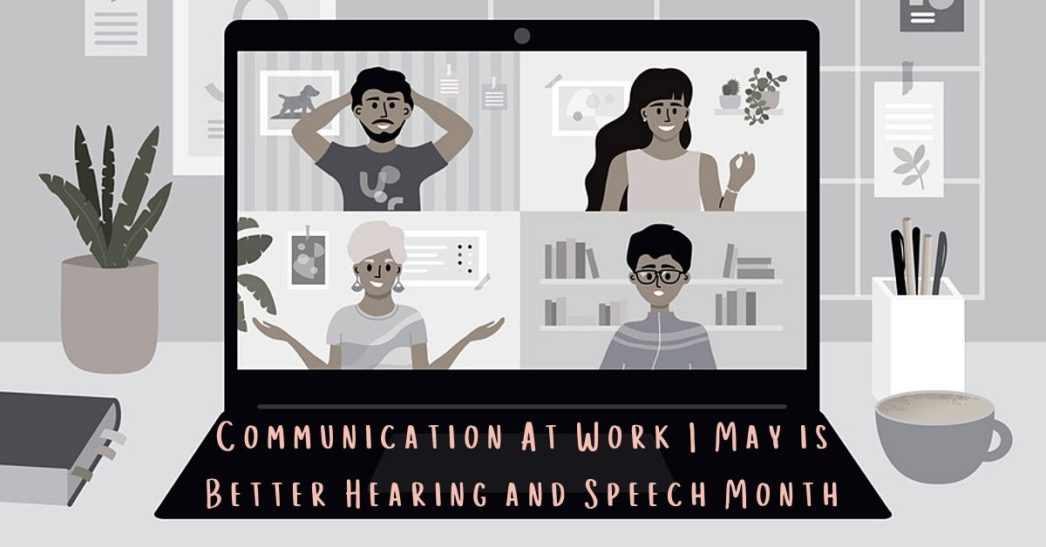Every May the American Speech-Language-Hearing Association (ASHA) celebrates Better Hearing and Speech Month. It is a time to spread awareness of the communication issues we face and the treatments that are available. This year’s theme is “Communication at Work,” so let’s take a look at some of the things we can do to be our best at work.
Disclosure of Hearing Loss
Many people who find they are having hearing issues struggle with the decision of whether to let their boss and coworkers know about it. They might be afraid it will change how they’re seen in the workplace, or that it will change what others think they’re capable of accomplishing. These fears are real, but it is best to get out in front of the problem and disclose hearing loss earlier on.
For one, the likelihood of miscommunication increases drastically when other people aren’t aware of any issues you’re having. They may tell you something important that you didn’t hear, and when things go awry you’ll take the blame. If they don’t know you’re having hearing issues, they’re likely to think you’re just not paying attention.
Once your employer knows you have hearing loss, you have recourse to the rights outlined under the Americans with Disabilities Act of 1990. These include reasonable accommodations for hearing loss, and you can start a conversation about what that means for you. The simplest daily things are likely to get easier, as you can let your workmates know how best to communicate with you, whether it’s standing closer, speaking louder, making sure to get your attention, or leaning more heavily on email. Once you start asking for these simple accommodations from people, you’ll see that it’s no problem for them. After a couple interactions, most people will start to remember what works and do it automatically.
Treating Hearing Loss
If you’re aware that you have hearing loss but you’re not currently fitted with hearing aids, you should schedule a hearing test sooner than later. Statistically, those who treat their hearing loss with hearing aids earn up to $30,000 more annually than those with untreated hearing loss. If your workplace has a Hearing Conservation Program, they will pay for annual hearing tests. And while it is rare, some companies will assist with the purchase of hearing aids. Most insurance companies view hearing aids as too inevitable a necessity for most people to cover the cost, though the VA hospital does cover hearing aids for those whose hearing loss is the result of military service.
Research Your Options
There are assistive workplace technologies that your employer ought to provide. You should look into technologies such as CART (Computer Assisted Realtime Translation), streamers, phones, PSAPs (Personal Sound Amplification Products) and FM systems. These can be relatively easy to incorporate into the workplace and go a long way toward improving your ability to get along there.
Educating your Coworkers
Let the people you’re working with know about your hearing loss. Is it easier for you to understand if they face you when they speak? Let them know. If you need them to say something again, ask them to say it in different words rather than just saying the same thing again louder. If you need them to enunciate a little more, ask for that. It may take a few reminders, but eventually they’ll understand what’s needed for you to understand them.
Beyond the Workplace
While your career is one area of life that will be improved by hearing aids, the positive effects are far reaching. Studies indicate that over 85% of those who get hearing aids are satisfied with them. It’s been shown time and time again that hearing aids help keep us active and feeling younger. They improve balance and prevent injuries. They improve our relationships with friends and loved ones and help keep us from becoming socially isolated. They prevent atrophy in the speech centers of the brain and slow the onset of dementia and cognitive decline. They minimize the ringing in the ears called “tinnitus.” With so many benefits within our reach, it’s important to start treating our hearing loss with hearing aids sooner than later. The benefits you’ll reap in the workplace and beyond are well worth it.


